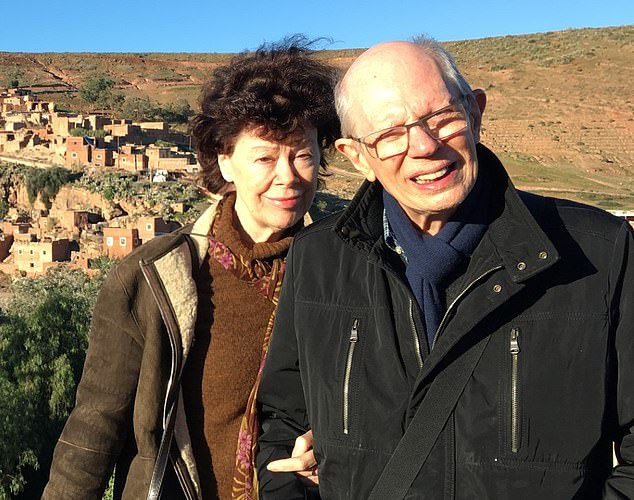Medics with just two years of training are ‘bending the rules to write prescriptions’: Calls grow to regulate physician associates
- The government wants to recruit 10,000 physician assistants by 2038
Unregulated doctors with just two years of training are risking patient safety by exploiting a ‘grey area’ in NHS guidelines to prescribe drugs, doctors claim.
Physician Associates (PA) assist doctors and nurses with their daily duties, but they are not supposed to treat patients and it is illegal for them to write prescriptions. But according to Dr Jatinder Hayre, PAs at the two major NHS hospitals where he has previously worked are instructing young doctors to do this on their behalf.
He also claims there have been cases where they have “changed a doctor’s prescription” after it was written, sometimes giving the patient “the wrong drug or dosage.”
The news comes a week after The Mail on Sunday revealed that GP chiefs called for a crackdown on PAs in the NHS following a series of ruinous misdiagnoses.
This included the sad case of 79-year-old Norman Jopling, who suffered a severe brain haemorrhage after a PA wrongly told him that his painful headaches were nothing to worry about.

Devastating: Norman Jopling, who suffered a crippling brain haemorrhage after seeing a dismissive PA, with wife Maureen Paton Maguire

Physician Associates (PA) assist doctors and nurses with their daily duties, but they are not supposed to treat patients
In June the government said it would recruit 10,000 PAs over the next fifteen years to help tackle the serious shortage of NHS staff. But doctors say this will endanger patients’ lives as they are already taking on tasks far beyond what their qualifications allow.
‘As a loophole to not have prescribing rights, I have seen PAs take advantage of newly qualified doctors – who have much more experience – by taking them on a ‘prescribing tour’,’ says Dr Hayre. ‘They instruct new doctors on what to prescribe.
‘PAs appear to have confidence in abundance, yet a relative scarcity of competence.’
PAs may take medical histories, perform physical examinations, and analyze test results, all under the supervision of a physician. They can also fill in forms and carry out basic checks, which can hinder the workload of GPs. Their education is typically completed after obtaining a bachelor’s degree in something related to health, such as psychology or sports science.
There are currently around 2,500 PAs working in the NHS, but ministers’ plans to increase their numbers have proven controversial among many doctors, amid fears they will replace highly skilled medics. Experts are particularly concerned that PAs are currently unregulated, meaning they cannot be held accountable for their mistakes.
Last week, the Royal College of General Practitioners (RCGP) told this newspaper that it is calling for rules to be put in place ‘as soon as possible’ so that the NHS can remove PAs proven to have made avoidable mistakes. And on Tuesday, anesthetists voted overwhelmingly against expanding the use of PAs at a meeting of the Royal College of Anesthetists.
“Many are doing on-site work that doctors would normally do,” says Dr Helen Salisbury, a GP and medical education expert at the University of Oxford. ‘There is a gray area in the rules, which means PAs can see a patient and then go to the doctor and suggest a prescription.
‘It is up to the doctor to check whether the medication is suitable for the patient, as the prescription is in his or her name. But the truth is that many doctors don’t have time for that, so the PA often makes the decision themselves.’
Experts also warn that they are directly involved in complicated hospital decisions, despite not having the qualifications to make such calls. “I have seen PAs who wanted to send complicated, sick patients home, only to be corrected by a qualified physician,” adds Dr. Hayre. ‘These patients would inevitably have become even sicker, or worse, if there had not been a doctor who had rushed to admit them.
‘PAs are promoted to exalted positions after a two-year course and let go. It is not safe.’
Our findings came as a shock to Maureen Paton Maguire, 71, wife of Norman Jopling – who was transferred to a rehabilitation center last week to help him speak and walk again. “It’s good news that Norman is finally starting to move, it feels like progress,” she says. ‘But he should never have been here. If he had been seen by a doctor instead of a PA, there’s a good chance this could all have been avoided.”
An NHS spokesperson said: ‘Prescriptions are only given by those with the legal authority to do so. Although doctors may do this on the advice of other professionals, they are responsible for ensuring that the medication is appropriate for the patient.”
